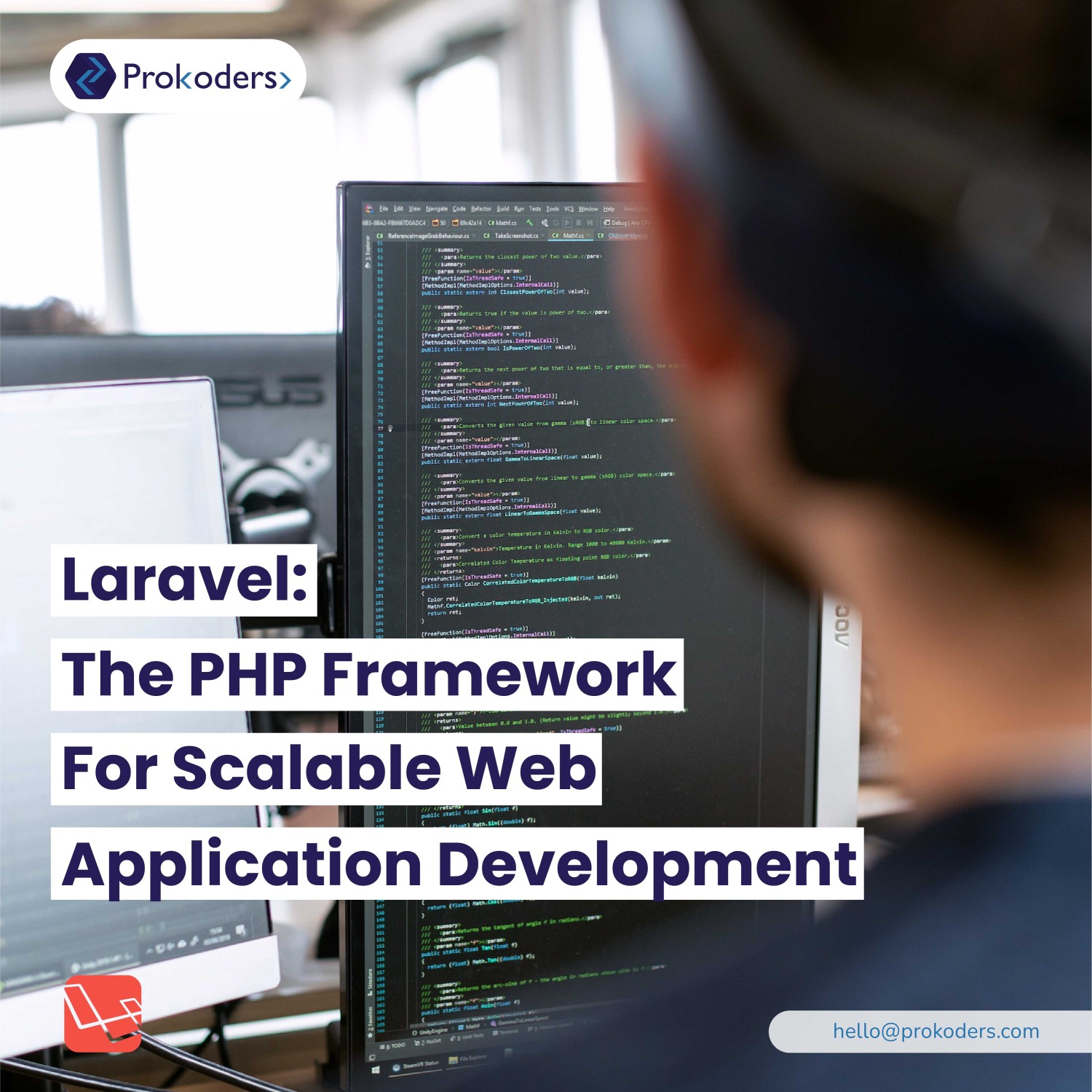
Laravel is a framework for infrastructure applications with a democratized expressive foundation that makes development modular, easier and enjoyable for developers by removing all the weak people who deal with PHP instructions.
Everything you need to know about Laravel can be found in the following lines..
Some examples of application websites that can be built using Laravel include:
1-E-commerce platforms: :
Laravel provides a solid foundation for developing e-commerce websites that can handle large amounts of data and complex payment processes.
2-Content management systems (CMS):
This programming framework has built-in support for creating CMS platforms that can manage multiple types of content, such as articles, images, and videos.
3-Social networks:
The framework provides features for building social networking websites that allow users to create profiles, connect with others, and share content.
4-Job boards:
The PHP framework can be used to create job board websites that allow users to search for and apply to job listings.
5-Project management tools:
Using this PHP framework is a great choice for developing project management tools that can help teams collaborate and manage tasks.
6-Learning management systems (LMS):
This PHP framework can be used to build LMS platforms that provide online courses, quizzes, and other educational resources.
7-Healthcare applications:
Laravel is a popular choice for building healthcare applications that need to manage patient data and other sensitive information.
What are the Benefits of using Laravel Framework?
1-Blade templating engine:
One of the key advantages is its Blade templating engine, which allows developers to create reusable and efficient templates for their applications. Blade provides an intuitive syntax for building templates, making it easy to create complex layouts and UI components.
2-Eloquent ORM:
Laravel comes with Eloquent ORM, a powerful object-relational mapper that simplifies database interactions. Eloquent allows developers to work with databases using PHP syntax, making it easy to create, read, update, and delete records. This can save developers a significant amount of time and effort when working with databases.
3-Artisan command-line interf :
Another standout feature iace (CLI):s its Artisan command-line interface (CLI), which provides a range of helpful commands for tasks such as generating boilerplate code, running database migrations, and managing dependencies. This can help streamline the development process and make it more efficient.
4-Robust Routing System :
Laravel also provides a robust routing system, allowing developers to define application routes using a simple and intuitive syntax. This makes it easy to map URLs to controller actions and create RESTful APIs.
5-Security :
In terms of security, It provides a range of built-in features for authentication and authorization, including CSRF protection, password hashing, and role-based access control. Moreover, Laravel's middleware system allows developers to define custom middleware to handle tasks such as logging, caching, and authentication.
Finally, Laravel makes it easy to manage database migrations and seeding, allowing developers to version-control their database schema and easily seed the database with test data.
It is a really powerful PHP framework that provides developers with a range of features and tools to create scalable and maintainable web applications. With its Blade templating engine, Eloquent ORM, Artisan CLI, routing system, security features, and database migration/seeding tools, Laravel is a top choice for developers looking to build robust web application
Services you may concern :
Web Development
Mobile App Services
UI/UX Design
Web and App Hosting
Testing Services
FAQs On Laravel: The PHP Framework For Scalable Web Application Development
Laravel is an open-source PHP web framework designed for the development of web applications following the model-view-controller (MVC) architectural pattern. It aims to make the development process simpler and more efficient by providing a variety of tools and features.
Laravel provides built-in support for scalability through features like database migrations, queue management, caching, and efficient routing mechanisms. Additionally, Laravel's modular structure and robust ecosystem of extensions allow developers to easily scale applications as needed.
Laravel offers features like expressive syntax, built-in authentication and authorization, ORM (Object-Relational Mapping) with Eloquent, artisan command-line interface for scaffolding and managing applications, routing, middleware support, queue management, caching, and more.